Comments
- No comments found
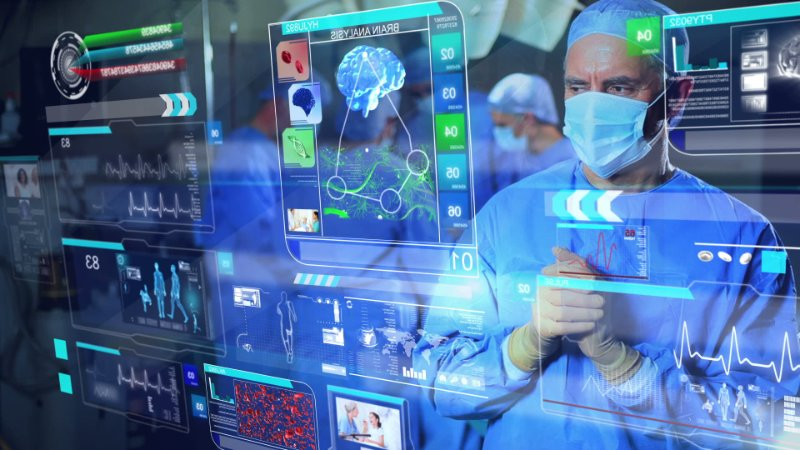
The use of artificial intelligence (AI) in precision medicine has the potential to revolutionize the way we diagnose, treat, and prevent diseases, ultimately leading to improved patient outcomes and a more efficient healthcare system.
In the ever-evolving landscape of healthcare, artificial intelligence (AI) stands as a transformative force that is redefining how we approach medical treatment.
One of the most promising applications of AI in healthcare is personalized medicine, an innovative approach that tailors medical treatments to individual patients.
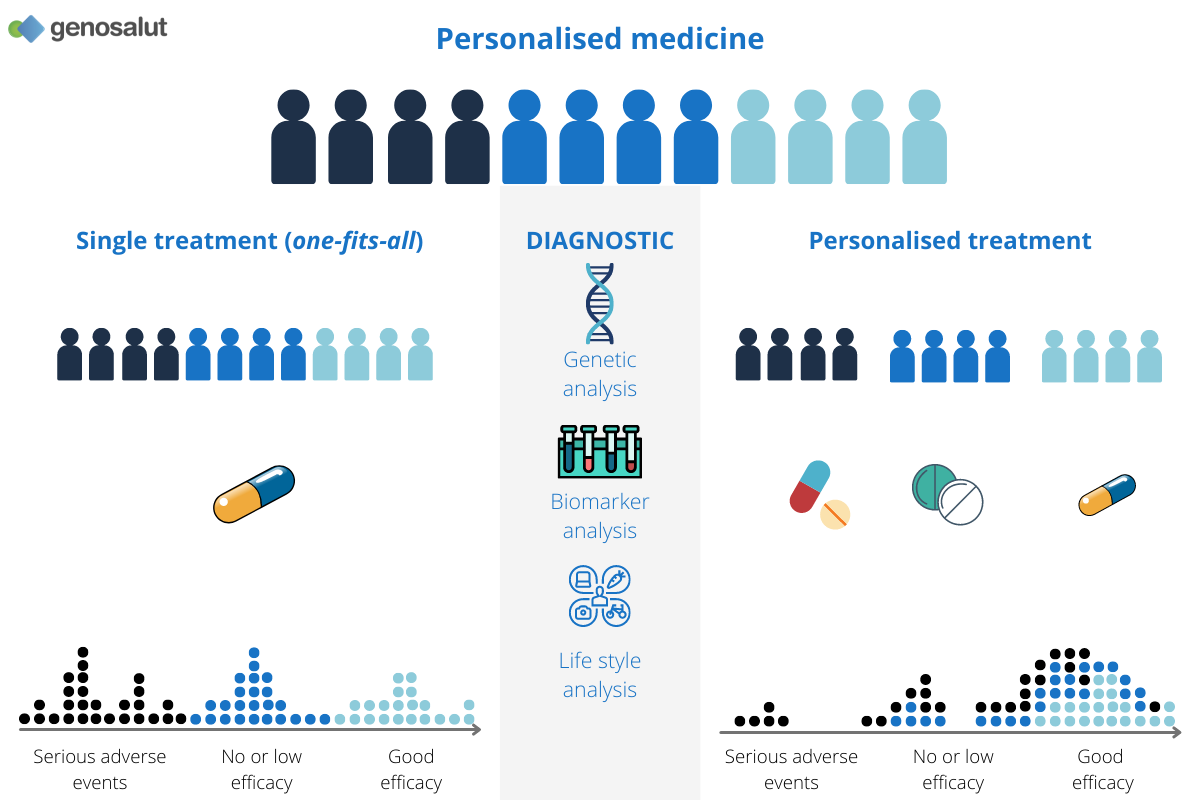
Source: Genosalut
The tremendous expansion of patient-derived data accounts for the popularity of AI-based approaches in the quest for precision medicine.
In this article, we will explore how AI is shaping the future of personalized medicine, unlocking a new era of precision healthcare.
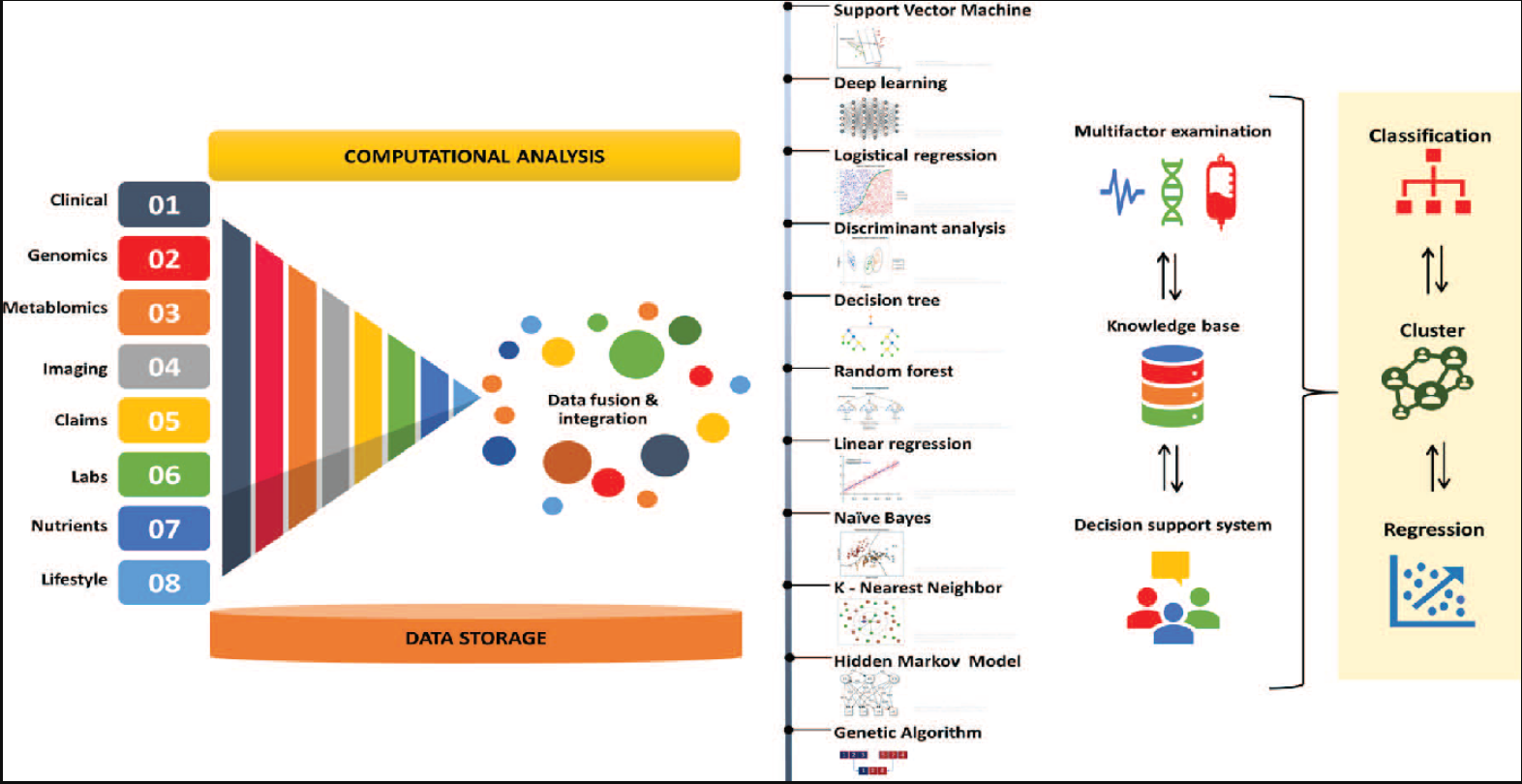
Source: Analytics Vidhya
At the core of personalized medicine lies the ability to leverage vast amounts of patient data to gain valuable insights into individual health profiles. Machine learning, with its remarkable capacity for processing big data, can rapidly analyze complex datasets, including genomic information, medical records, lifestyle choices, and environmental factors. By understanding these intricacies, AI algorithms can pinpoint disease risk factors, identify potential treatment options, and predict patient responses to specific therapies.
Genomic sequencing has unlocked a wealth of genetic information, offering unprecedented insights into an individual's predisposition to certain diseases and their unique response to treatments. AI plays a pivotal role in interpreting genomic data, enabling healthcare professionals to tailor therapies based on a patient's genetic makeup. This level of precision therapy not only maximizes treatment effectiveness but also minimizes adverse reactions and unnecessary interventions, ushering in a new era of safer and more personalized healthcare.
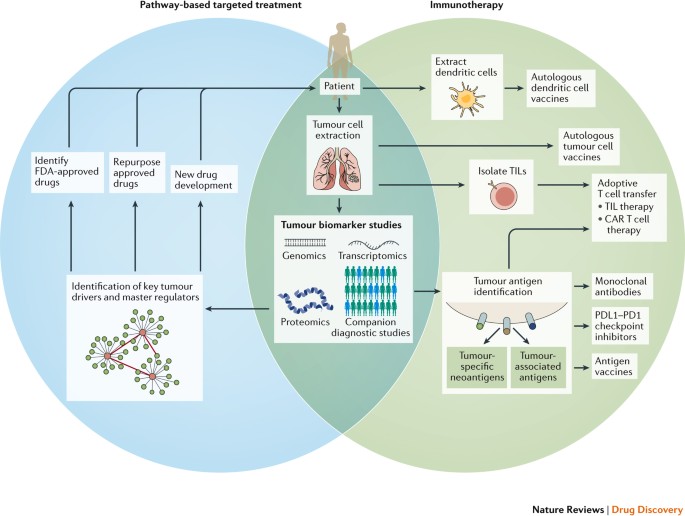
Source: Nature
The traditional drug development process is often lengthy and costly, with potential therapies undergoing years of testing before reaching patients. AI accelerates this process by streamlining drug discovery through predictive modeling, virtual screening, and target identification. By analyzing vast datasets and simulating drug interactions, AI-driven drug development can identify potential candidates faster, potentially leading to more efficient clinical trials and ultimately accelerating the time-to-market for novel treatments.
Early detection and accurate diagnosis are critical components of effective healthcare. AI-powered diagnostic tools, such as image recognition algorithms and natural language processing, can analyze medical images and patient records with exceptional precision. These technologies enable healthcare providers to detect diseases at their earliest stages, leading to timely interventions and improved patient outcomes.
AI-driven predictive models can anticipate disease progression and recommend personalized treatment plans based on a patient's unique characteristics. These models continuously learn and evolve with new data, ensuring that treatment decisions remain up-to-date and relevant to each patient's changing health status. This level of predictive medicine empowers healthcare professionals to intervene proactively, mitigating potential health risks and optimizing patient well-being.
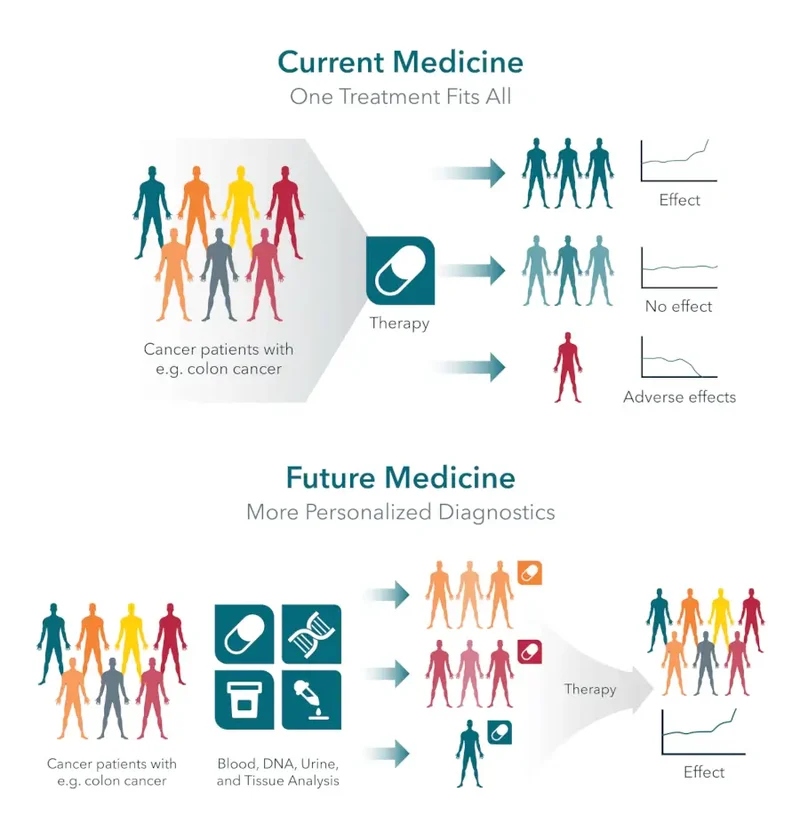
Source: Crownbio
Artificial intelligence has emerged as a transformative force in personalized medicine, reshaping the landscape of modern healthcare. Through its unparalleled ability to process big data, AI enables precision diagnostics, personalized therapies, and accelerated drug development. With the promise of improved patient outcomes, increased treatment efficiency, and a more proactive healthcare approach, personalized medicine driven by AI is poised to revolutionize how we understand and treat diseases. As technology continues to advance, the future of healthcare holds boundless possibilities, where AI and personalized medicine intersect to deliver precision healthcare for all.
Leave your comments
Post comment as a guest